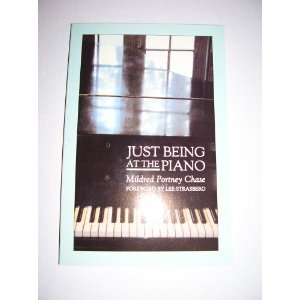As I trekked down a steep hill with my knapsack swelling with groceries, I found myself percolating with ideas about piano study. In a reflective state of mind, I was centered on learning process challenges that are not tied to the basics of producing a singing tone, improving technique, nuancing and shaping phrases, allowing relaxed energies to flow down buoyant arms into supple wrists. Instead, I was focused on my teaching experiences with adults, and how “attitude” can affect musical growth.
One particular impediment to a piano student’s healthy engagement with the piano, is his/her focus on “expectation.” This particular verbal reference is intermittently voiced through lessons and it circumscribes a belief that the piano teacher is “expecting” week by week progress and proficiency. On the other side of the coin, the student internally “expects” a tangible, if not, conspicuously visible level of advancement from lesson to lesson.
As an example, if a student “feels” that the teacher has more than once asked for repetition of particular measures to clarify phrase shaping, it might be construed as follows: “How many times you’ve told me this same thing, and I just don’t seem to get it right. I am not progressing, as I should. I’m not living up to your expectation.” Obviously these are projections onto the teacher that have no basis in truth as to the meaning of the repetition. It is a neutral mentoring prompt that might be imparted for a few weeks without having a value judgment attached to it. (I certainly don’t count how often I make the same suggestions.)
As pertains to my own model for learning, I consider repetitions to embody attentive listening, with adjustments that amplify phrasing and expression. I do not tabulate my repetitions or “expect” a deadline to fully realize all that I “imagine” as a beautiful line. I embrace a baby-step, incremental journey for each composition with immersion in a creative and experimental process. My own layered learning approach is embedded in decades long experiences that I certainly don’t “EXPECT” can be instantly absorbed by my students. For these musical voyagers, I have enduring patience grounded in empathy.
In another lesson snapshot with an adult student, a particular assigned piece can span weeks of exposure with a “time deadline” imposed by the “expectation” burdened student. Such impatience drives the pupil to request new pieces that can spread him/her thin. Nonetheless, it becomes a revolving door revisit of the same self-imposed barriers to learning that sprang from unrealistic “expectations.”
Finally, “Expectation” whether radiated outward from the student to the teacher, or self-generated as an internal “pressure” to achieve concrete results, is defeating of a healthy musical journey.
In truth, “progress” is subjective and it’s not a week to week measurement of gains. Considering a demographic of adult students who return to the piano in their retirement years, of which I’m very familiar, I discourage a graph or spreadsheet of progress. Still, I will provide needed reality testing–pointing out how for instance, a staccato rendered scale is now nicely prancing to destination with a bounce of a playground romp. And because I have a video archive of lesson segments, often shared with students between lessons, these can reveal scales or pieces that were played months before and have grown over time in review. In this endeavor, a student will impartially “observe” the difference in his/her playing, with a feeling of self-affirmation and renewed confidence. (This is my hope as a nurturing teacher)
Positive Music-sharing that aids musical growth
Every three months, my adult students of diverse ages–some retired, others, not, participate in our community Online music sharing. The intention is exactly that, to “share” one of more pieces that they’ve been working on. The framing message is that “perfection” is not at the heart of our gatherings. But rather that pieces played are in embryonic stages as no composition will ever reach complete gestation–that repertoire studied will always be reborn with new consciousness and awakenings.
Here’s a lesson in progress, where a student was preparing to share Burgmuller’s “Harmony of the Angels,” Op. 100, No. 21. (This video was edited for teacher suggestions) It explored the “feeling” and phrasing of “rests” that are carried over from silence to sound–where natural breathing is at the center of expression.
***
Within this relaxed and “timeless” music learning cosmos, one my favorite published diaries is authored by Mildred Portney Chase. Just Being at the Piano is my favorite writing that I meditate upon when I find myself feeling tension in my practicing. It is a form of cleansing, and eradication of self-judgment. It focuses on the merging of self with the music–a ONENESS that is to be sought and treasured.
…and here’s where I evoke the wise words of Mildred Portney Chase:

“I am continually finding my way toward the here and now in my music and realizing a whole new dimension to the experience of playing. Nowhere is it more important to be in the here and now than in playing the piano. The slightest lapse in attention will affect every aspect of how I realize the re-creation of a piece of music. One note coming a hairbreadth late in time, may distort the expression of a phrase.
“It is impossible to be self-conscious and totally involved in the music at the same time. Consciousness of the self is a barrier between the player and the instrument. As I forget my own presence, I attain a state of oneness with the activity and become absorbed in a way that defies the passage of time.”
from Arioso7's Blog (Shirley Kirsten)
https://arioso7.wordpress.com/2022/07/16/expectation-should-not-be-a-part-of-piano-learning-in-the-adult-student-non-competitive-environment/
No comments:
Post a Comment